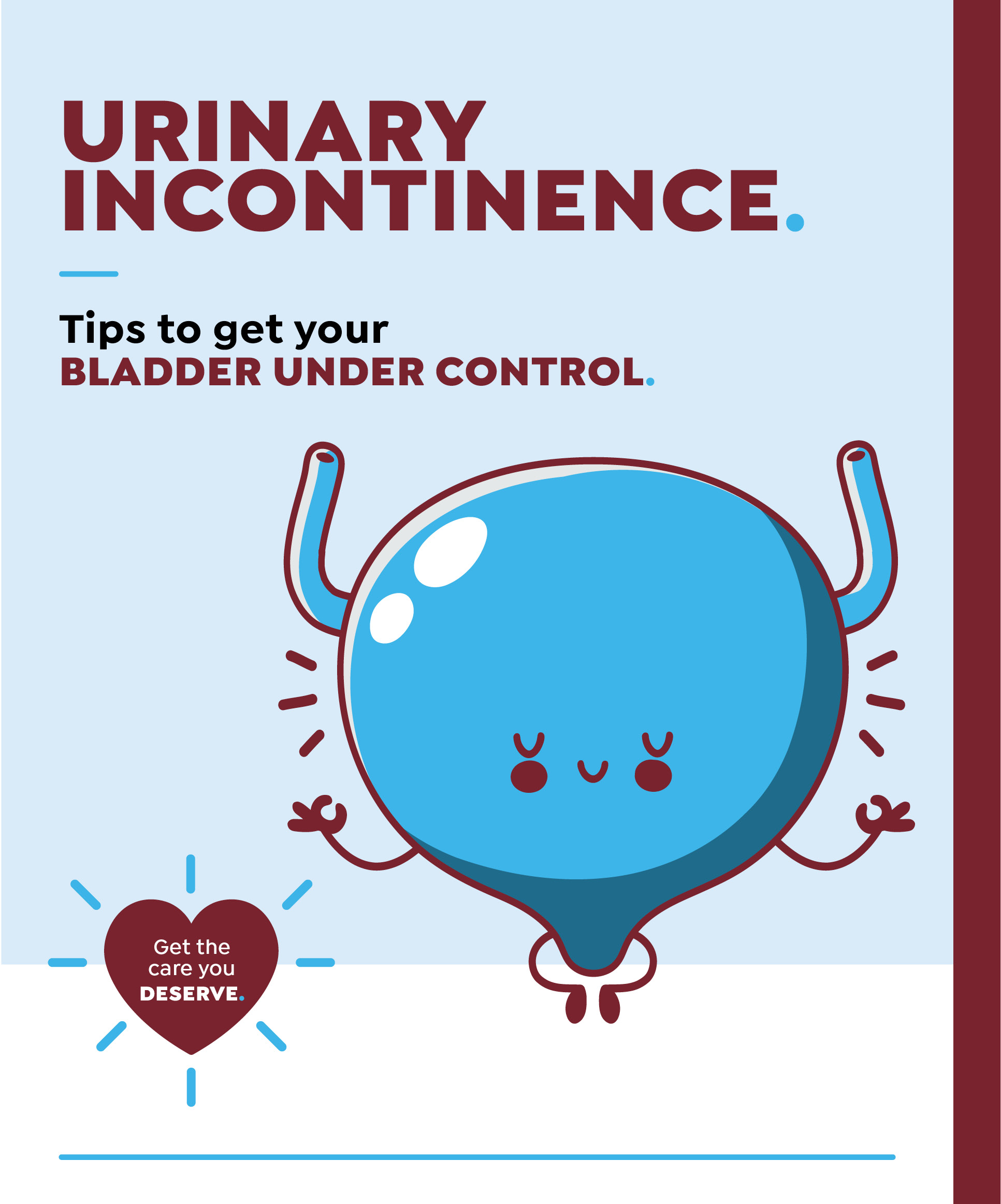Drink the right amount of liquid at the right time.
Be smart about how much liquids you’re drinking throughout the day. To avoid nighttime trips to the bathroom, you might want limit liquids a few hours before bedtime. Remember it’s important to stay hydrated, don’t limit liquids to the point of becoming dehydrated.
Be physically active.
Regular physical activity is important for weight management and good overall health. Even something like walking can improve your health.
Keep a healthy weight.
Losing weight can help you have fewer leaks and avoiding weight gain may prevent urinary incontinence. Studies suggest that, as your body mass index (BMI) increases, you’re more likely to leak.
Control Diabetes.
Diabetes can damage nerves around the bladder that help with control. Maintain a healthy blood sugar level will help to prevent bladder nerve damage from occurring.
Limit caffeine and alcohol.
Try to limit caffeine and alcohol beverages which increases urine that your body produces.
Stop smoking.
Quitting smoking at any age is good for your bladder health and overall health. Smoking raises your chances of developing stress incontinence because smoking causes chronic, or long-lasting, coughing. Smoking also causes most cases of bladder cancer.
Avoid constipation.
Talk with your healthcare provider about eating enough fiber to help avoid constipation. Poor diet and not enough exercise are contributors to constipation. Avoid overuse of laxatives and/or enemas; use only as directed by your healthcare provider.
Relax when using the bathroom.
Be in a position to relax the muscles around the bladder when urinating, it will make it easier to empty the bladder. For women, hovering over the toilet seat may make it hard to relax, so it is best to sit on the toilet seat.
Take enough time to fully empty the bladder when urinating, as often as needed.
Try to urinate at least every 3 to 4 hours. Holding urine in your bladder for too long can weaken your bladder muscles and make a bladder infection more likely. Rushing when you urinate may not allow you to fully empty the bladder. If urine stays in the bladder too long, it can make a bladder infection more likely.
Wear cotton underwear and loose-fitting clothes.
Wearing loose, cotton clothing will allow air to keep the area around the urethra dry. Tight-fitting jeans and nylon underwear can trap moisture and help bacteria grow.
Do pelvic floor muscle exercise.
Strong pelvic floor muscles hold in urine better than weak muscles. You can make your pelvic floor muscles stronger by doing Kegel exercises. These exercises involve tightening and relaxing the muscles that control urine flow. The Urology Care Foundation suggests that you complete at least two sessions of Kegel exercises per day. Up to 30 contractions per session.
Visit your healthcare provider.
If you’re having troubling with urine incontinence, make an appointment with your healthcare provider. They can help diagnose the cause of your symptoms and discuss treatment options.
Sources: https://www.niddk.nih.gov/health-information/urologic-diseases/bladder-control-problems/treatment


